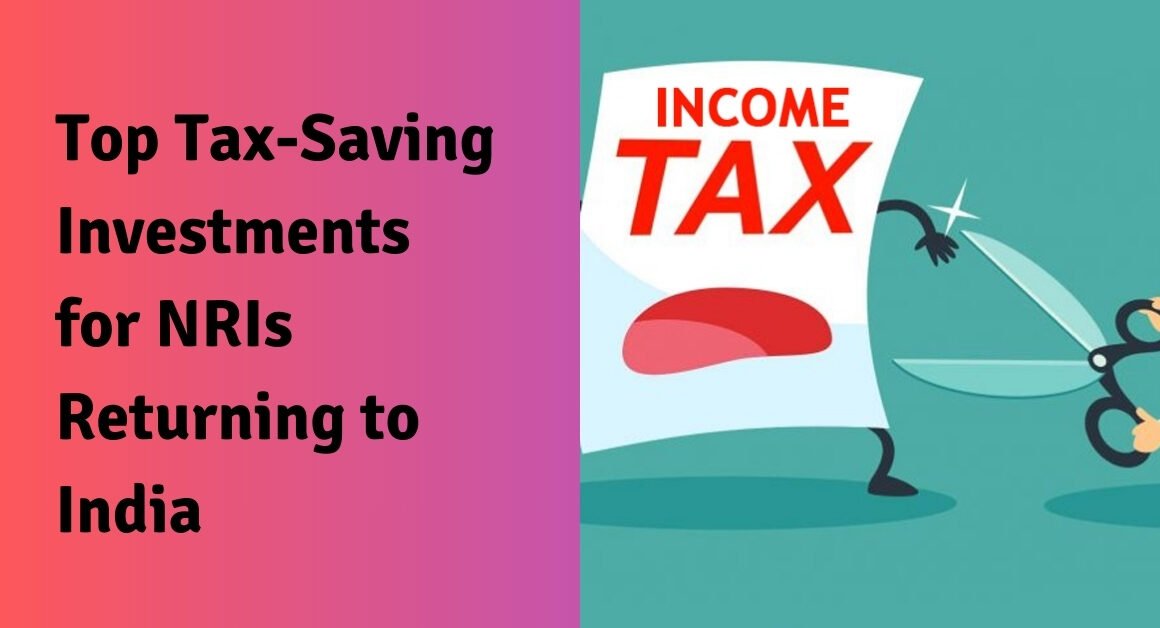Why NRIs Should Consider Investing in Indian Corporate Bonds?
As a Non-Resident Indian (NRI), you may be looking for ways to diversify your investment portfolio while maintaining a connection to your home country. One often overlooked but potentially rewarding option is investing in Indian corporate bonds. These debt instruments offer a unique blend of benefits that can make them an attractive addition to your investment strategy. In this blog, we’ll explore why NRIs should consider investing in Indian corporate bonds and what you need to know before taking the plunge. Understanding Indian Corporate Bonds Before delving into the benefits, let’s briefly explain what corporate bonds are. Corporate bonds are debt securities issued by companies to raise capital. When you invest in a corporate bond, you’re essentially lending money to the company. In return, the company promises to pay you interest at regular intervals and return the principal amount when the bond matures. Reasons for NRIs to Consider Indian Corporate Bonds Attractive Yields Indian corporate bonds often offer higher yields compared to similar investments in developed markets. This is particularly appealing in the current low-interest-rate environment prevalent in many Western countries. The higher yields can provide a steady income stream, which can be especially beneficial for NRIs looking to supplement their earnings or plan for retirement. Diversification Benefits Adding Indian corporate bonds to your portfolio can help in diversification. By investing across different asset classes and geographical regions, you can potentially reduce overall portfolio risk. Indian corporate bonds provide exposure to the Indian economy, which may have a different economic cycle than your country of residence. Potential for Capital Appreciation While bonds are primarily income-generating instruments, there’s also potential for capital appreciation. If interest rates in India fall, the value of existing bonds with higher coupon rates may increase. This can lead to capital gains if you sell the bonds before maturity. Currency Appreciation Potential For NRIs investing from countries with strong currencies, there’s potential to benefit from the appreciation of the Indian Rupee over time. Although currency movements are unpredictable, long-term economic growth in India could lead to a stronger Rupee, enhancing your returns when converted back to your home currency. Supporting India’s Growth Story By investing in Indian corporate bonds, you’re directly contributing to the growth of Indian businesses and the overall economy. This can be a rewarding way to maintain a financial connection with your home country and participate in its economic development. Regulated Environment The Indian bond market is regulated by the Securities and Exchange Board of India (SEBI) and the Reserve Bank of India (RBI). These regulatory bodies work to ensure transparency and protect investors’ interests, providing a level of security for your investments. Variety of Options The Indian corporate bond market offers a wide range of options to suit different risk appetites and investment goals. From blue-chip companies to mid-sized enterprises, you can choose bonds that align with your investment strategy. Considerations Before Investing While Indian corporate bonds offer several advantages, it’s important to be aware of certain factors: Credit Risk Not all corporate bonds are created equal. The financial health of the issuing company directly impacts the risk associated with the bond. It’s crucial to assess the credit ratings and financial stability of the companies whose bonds you’re considering. Interest Rate Risk Bond prices generally move inversely to interest rates. If interest rates in India rise, the value of your existing bonds may decrease. However, this is mainly a concern if you plan to sell the bonds before maturity. Liquidity Considerations The secondary market for corporate bonds in India, while improving, may not be as liquid as some other markets. This could potentially make it challenging to sell bonds before maturity if you need to access your funds quickly. Tax Implications NRIs need to be aware of the tax implications both in India and in their country of residence. Interest earned on Indian corporate bonds is typically taxable in India, and you may also have tax obligations in your country of residence. Regulatory Requirements There are specific regulations governing NRI investments in Indian securities. Familiarize yourself with these rules or consult with a financial advisor who specializes in NRI investments. How to Invest in Indian Corporate Bonds NRIs can invest in Indian corporate bonds through various routes: Each method has its own advantages and considerations, so choose the one that best fits your investment style and goals. Conclusion Indian corporate bonds present an interesting investment opportunity for NRIs looking to diversify their portfolio and potentially earn attractive returns. They offer a way to participate in India’s growth story while generating regular income. However, like all investments, they come with their own set of risks and considerations. Before investing, it’s crucial to thoroughly research the options available, understand the associated risks, and consider how corporate bonds fit into your overall investment strategy. As always, consulting with a financial advisor who understands both NRI investments and the Indian financial market can provide valuable insights and help you make informed decisions. Frequently Asked Questions (FAQs) 10.How might currency fluctuations affect my returns on Indian corporate bonds?Ans- Currency fluctuations can impact your returns when converted to your home currency. A depreciating rupee could reduce your effective returns, while an appreciating rupee could enhance them. Disclaimer: The information provided here is for educational and informational purposes only and should not be construed as financial, legal, or tax advice. Consult with a qualified professional before making any investment decisions. We do not accept any liability for errors or omissions in this information nor any direct, indirect, or consequential losses arising from its use.
How NRIs Can Invest in Indian Stock Markets: A Step-by-Step Guide?
As a Non-Resident Indian (NRI), investing in the Indian stock market can be an attractive opportunity to participate in India’s economic growth and diversify your investment portfolio. The process, while straightforward, requires careful planning and understanding of the regulations. This guide will walk you through the steps to invest in Indian stocks as an NRI. Understanding NRI Investment in Indian Stocks Before diving into the process, it’s important to note that NRIs can invest in Indian stocks on both a repatriable and non-repatriable basis. The choice between these options affects how you can transfer your investment returns out of India. Step 1: Open a Bank Account The first step is to open an NRI bank account in India. You have two options: Most banks in India offer these services, and you can often start the process online. Step 2: Obtain a Permanent Account Number (PAN) A PAN card is mandatory for all financial transactions in India, including stock market investments. If you don’t already have one, you can apply online through the Income Tax Department’s website or authorized agents. Step 3: Complete Your KYC (Know Your Customer) KYC is a mandatory process to verify your identity. You’ll need to provide: Many financial institutions now offer e-KYC options for NRIs. Step 4: Open a Demat and Trading Account To buy and sell shares, you need both a Demat account (to hold shares electronically) and a trading account (to carry out transactions). Many brokers offer 3-in-1 accounts that link your bank, Demat, and trading accounts. When choosing a broker, consider factors like: Step 5: Fund Your Account Transfer money from your NRE or NRO account to your linked trading account. Remember: Step 6: Start Investing With your account set up and funded, you can start investing in Indian stocks. Here are some options: Step 7: Monitor and Manage Your Investments Regularly review your portfolio and make adjustments based on your financial goals and market conditions. Many brokers offer mobile apps for easy monitoring and trading. Step 8: Understand Tax Implications As an NRI, you’re subject to specific tax rules on your Indian investments: Be sure to consult with a tax professional familiar with NRI taxation. Step 9: Comply with Regulatory Requirements Stay informed about regulations from the Reserve Bank of India (RBI) and Securities and Exchange Board of India (SEBI) regarding NRI investments. These rules can change, so regular check-ins with your financial advisor are recommended. Step 10: Consider Repatriation Procedures If you plan to repatriate your investment returns: Ensure you follow the proper procedures and obtain necessary certifications from a chartered accountant. Conclusion Investing in the Indian stock market as an NRI can be a rewarding experience, offering exposure to one of the world’s fastest-growing economies. By following these steps and staying informed about regulations, you can effectively participate in India’s financial markets. Remember, investing carries risks, and it’s crucial to do thorough research and possibly consult with a financial advisor before making investment decisions. Frequently Asked Questions (FAQs) Disclaimer: The information provided here is for educational and informational purposes only and should not be construed as financial, legal, or tax advice. Consult with a qualified professional before making any investment decisions. We do not accept any liability for errors or omissions in this information nor any direct, indirect, or consequential losses arising from its use.
Investment Strategies for NRIs: Balancing Indian and Global Markets
As a Non-Resident Indian (NRI), you have the unique opportunity to invest in both Indian and global markets. This dual-market access allows for greater diversification and potential returns, but it also comes with its own set of challenges. In this blog, we’ll explore effective investment strategies for NRIs to balance their portfolios across Indian and global markets. Understanding the NRI Investment Landscape Before diving into specific strategies, it’s crucial to understand the investment landscape available to NRIs: Key Strategies for Balancing Investments Asset Allocation The foundation of a balanced portfolio is proper asset allocation. Consider the following: Aim for a mix that aligns with your risk tolerance and investment goals. A common starting point is the 60/40 rule: 60% in equities and 40% in debt, adjusted based on your age and risk profile. Geographical Diversification Spread your investments across different countries and regions: Consider allocating 30-40% to Indian markets and the rest to global markets, adjusting based on your comfort level and market conditions. Currency Management Be mindful of currency risks: Leverage NRI-specific Investment Options Take advantage of investment vehicles designed for NRIs: These options offer unique benefits like tax-free interest (NRE accounts) and protection against currency fluctuations (FCNR deposits). Utilize Mutual Funds and ETFs For easy diversification and professional management: These instruments offer a simple way to achieve geographical and asset diversification. Real Estate Investment Consider real estate investments in both India and your country of residence: Remember to factor in the illiquidity of direct real estate investments. Stay Informed About Tax Implications Understanding tax laws is crucial: Regular Portfolio Rebalancing Markets change, and so should your portfolio: Long-term Perspective Maintain a long-term view: Professional Guidance Given the complexity of cross-border investing: Implementation Steps Conclusion Balancing investments between Indian and global markets as an NRI requires careful planning and execution. By diversifying across geographies and asset classes, managing currency risks, and staying informed about tax implications, you can create a robust portfolio that capitalizes on global opportunities while maintaining ties to the Indian market. Remember, the key to successful investing is to align your strategy with your personal financial goals and risk tolerance. Frequently Asked Questions (FAQs) Disclaimer: The information provided here is for educational and informational purposes only and should not be construed as financial, legal, or tax advice. Consult with a qualified professional before making any investment decisions. We do not accept any liability for errors or omissions in this information nor any direct, indirect, or consequential losses arising from its use.
How to Transfer Your Retirement Savings to India as an NRI?
As a Non-Resident Indian (NRI) planning to return to India, transferring your retirement savings is a crucial step in your financial transition. This process requires careful planning and consideration of various factors, including tax implications, currency exchange rates, and investment options in India. In this blog, we’ll guide you through the process of transferring your retirement savings to India effectively and efficiently. Understanding Your Retirement Savings Before initiating the transfer process, it’s essential to understand the types of retirement savings you may have: Each of these savings types may have different rules and regulations regarding withdrawal and transfer, especially for non-residents. Steps to Transfer Retirement Savings to India Evaluate Your Current Financial Situation Start by assessing your current retirement savings, outstanding debts, and future financial needs in India. This evaluation will help you determine how much of your savings you should transfer. Research Tax Implications Understand the tax consequences of withdrawing and transferring your retirement savings. This may involve: It’s crucial to consult with tax professionals in both countries to optimize your tax strategy. Choose the Right Time to Transfer Consider factors such as: Timing your transfer wisely can significantly impact the value of your savings in India. Select an Appropriate Transfer Method There are several ways to transfer your retirement savings to India: Each method has its pros and cons in terms of speed, cost, and convenience. Research and choose the most suitable option for your situation. Open Appropriate Bank Accounts in India If you haven’t already, open NRE and NRO (Non-Resident Ordinary) accounts in India. These accounts are designed for NRIs and offer various benefits: Consider Investment Options in India Once your funds are in India, explore various investment options to grow your retirement corpus: Each option has its own risk profile, returns potential, and tax implications. Choose based on your risk appetite and financial goals. Plan for Currency Risk Management To mitigate the risk of currency fluctuations affecting your savings: Address Social Security Benefits If you’re entitled to Social Security benefits from countries like the US: Review and Adjust Your Strategy Regularly review your transfer and investment strategy. Factors to consider include: Be prepared to adjust your approach as necessary. Challenges and Considerations Conclusion Transferring your retirement savings to India as an NRI is a complex process that requires careful planning and execution. By understanding the various aspects involved – from tax implications to investment options – you can make informed decisions that secure your financial future in India. Remember, each individual’s situation is unique, so it’s crucial to tailor your approach to your specific circumstances and seek professional advice when needed. Frequently Asked Questions (FAQs) Disclaimer: The information provided here is for educational and informational purposes only and should not be construed as financial, legal, or tax advice. Consult with a qualified professional before making any investment decisions. We do not accept any liability for errors or omissions in this information nor any direct, indirect, or consequential losses arising from its use.
Top Tax-Saving Investments for NRIs Returning to India
As a Non-Resident Indian (NRI) planning to return to India, managing your finances and optimizing your tax liability are crucial steps in your transition. India offers various tax-saving investment options that can help you reduce your tax burden while potentially growing your wealth. In this blog, we’ll explore some of the top tax-saving investments available to NRIs returning to India. Understanding Tax Residency Status Before diving into tax-saving investments, it’s important to understand your tax residency status. When you return to India, your tax status may change based on the number of days you spend in the country. This can affect your tax liability and investment options. Top Tax-Saving Investments for Returning NRIs Public Provident Fund (PPF) The Public Provident Fund is a long-term savings scheme backed by the Indian government. It offers tax benefits under Section 80C of the Income Tax Act. Key features: Equity-Linked Savings Scheme (ELSS) ELSS funds are tax-saving mutual funds that primarily invest in equity markets. They offer potential for high returns along with tax benefits. Key features: National Pension System (NPS) The NPS is a government-sponsored pension scheme that offers tax benefits and helps in retirement planning. Key features: Tax-Saving Fixed Deposits Many banks offer tax-saving fixed deposits that provide guaranteed returns and tax benefits. Key features: Unit Linked Insurance Plans (ULIPs) ULIPs combine insurance coverage with investment opportunities and offer tax benefits. Key features: Sukanya Samriddhi Yojana (SSY) If you have a daughter under 10 years of age, the Sukanya Samriddhi Yojana can be an excellent tax-saving option. Key features: Strategies for Maximizing Tax Savings Conclusion As an NRI returning to India, you have several tax-saving investment options at your disposal. By carefully selecting a mix of these investments based on your financial goals, risk appetite, and investment horizon, you can effectively reduce your tax liability while working towards your long-term financial objectives. Remember, tax planning is just one aspect of your overall financial strategy. It’s advisable to consult with a qualified financial advisor to create a comprehensive financial plan that takes into account your unique circumstances and goals. Frequently Asked Questions (FAQs) Disclaimer: The information provided here is for educational and informational purposes only and should not be construed as financial, legal, or tax advice. Consult with a qualified professional before making any investment decisions. We do not accept any liability for errors or omissions in this information nor any direct, indirect, or consequential losses arising from its use.
Understanding the Differences Between NRO and NRE Accounts for NRIs
As a Non-Resident Indian (NRI), managing your finances across borders can be a complex task. Two key financial tools at your disposal are Non-Resident Ordinary (NRO) and Non-Resident External (NRE) accounts. These accounts serve different purposes and come with distinct features that cater to the unique needs of NRIs. In this blog, we’ll explore the differences between NRO and NRE accounts to help you make informed decisions about your financial management. What are NRO and NRE Accounts? Before diving into the differences, let’s briefly define these account types: Key Differences Between NRO and NRE Accounts Source of Funds Repatriability Taxability Joint Account Holders Currency Exchange Rate Risk Purpose Choosing Between NRO and NRE Accounts The choice between an NRO and NRE account depends on your specific financial needs and goals as an NRI. Here are some factors to consider: Benefits of Maintaining Both NRO and NRE Accounts Many NRIs find it beneficial to maintain both types of accounts. This strategy allows for: By understanding the unique features of each account type, you can create a financial strategy that aligns with your goals as an NRI. Conclusion NRO and NRE accounts are essential financial tools for NRIs, each serving distinct purposes. While NRO accounts help manage Indian-sourced income and expenses, NRE accounts offer advantages for foreign earnings and repatriation. By carefully considering your financial needs and goals, you can make an informed decision about which account type(s) to use, ensuring effective management of your finances across borders. Frequently Asked Questions (FAQs) Disclaimer: The information provided here is for educational and informational purposes only and should not be construed as financial, legal, or tax advice. Consult with a qualified professional before making any investment decisions. We do not accept any liability for errors or omissions in this information nor any direct, indirect, or consequential losses arising from its use.
How NRIs Can Leverage Dual Citizenship for Financial Benefits?
As a Non-Resident Indian (NRI), navigating the complex world of international finance can be challenging. However, for those fortunate enough to hold dual citizenship, there are unique opportunities to optimize their financial strategies. This blog post explores how NRIs can leverage dual citizenship for financial benefits, covering aspects such as taxation, investment opportunities, and retirement planning. Understanding Dual Citizenship Dual citizenship, also known as dual nationality, is the status of being a citizen of two countries simultaneously. While India does not officially recognize dual citizenship, many countries allow their citizens to hold multiple passports. For NRIs, this often means retaining their Indian citizenship while also being a citizen of their country of residence. Tax Implications and Advantages One of the most significant areas where dual citizenship can offer financial benefits is taxation. Different countries have varying tax laws, and understanding these can help NRIs optimize their tax strategies. Tax Treaties Many countries have tax treaties with India, which can help avoid double taxation. These agreements often provide relief on income tax, capital gains tax, and inheritance tax. By carefully planning their financial activities, dual citizens can take advantage of the most favorable tax rates and exemptions offered by either country. Foreign Tax Credits In some cases, dual citizens may be eligible for foreign tax credits. This means that taxes paid in one country can be offset against tax liabilities in the other, potentially reducing the overall tax burden. Investment Opportunities Dual citizenship can open doors to a wider range of investment opportunities, allowing NRIs to diversify their portfolios across multiple markets. Access to Local Investment Products As a citizen of another country, NRIs may have access to investment products that are typically restricted to local residents. This could include certain mutual funds, pension schemes, or government bonds that offer attractive returns. Real Estate Investments Dual citizenship can simplify the process of purchasing and managing real estate in both countries. This not only provides opportunities for capital appreciation but also potential rental income in multiple currencies. Banking and Financial Services Having citizenship in two countries often allows NRIs to maintain bank accounts and access financial services in both nations. This can be particularly beneficial for managing international transactions, remittances, and maintaining emergency funds. Multi-Currency Accounts Many international banks offer multi-currency accounts to dual citizens. These accounts allow you to hold and manage funds in different currencies, reducing exchange rate risks and transaction costs. Retirement Planning Dual citizenship can significantly impact retirement planning strategies for NRIs. Pension Benefits Some countries offer generous pension schemes to their citizens. By holding dual citizenship, NRIs may be eligible for pension benefits in both countries, potentially increasing their retirement income. Social Security Agreements Several countries have social security agreements with India. These agreements can help dual citizens combine their work histories from both countries to qualify for social security benefits, ensuring a more secure retirement. Education Funding For NRIs with children, dual citizenship can offer advantages in education funding. Access to Local Education Systems Citizenship often comes with the right to access public education systems at local rates, which can be significantly lower than international student fees. Scholarships and Grants Many countries offer scholarships and grants exclusively to their citizens. Dual citizenship can increase the pool of financial aid options available for higher education. Business Opportunities Entrepreneurs with dual citizenship may find it easier to establish and operate businesses in both countries. Ease of Doing Business Citizenship often comes with fewer restrictions on business ownership and operation, making it simpler to tap into markets in both countries. Government Contracts Some government contracts are reserved for citizens. Dual citizenship can increase opportunities to bid on these potentially lucrative projects in both countries. Conclusion While dual citizenship presents numerous financial benefits for NRIs, it’s crucial to approach this strategy with careful planning and expert advice. The complexities of international tax laws, investment regulations, and citizenship requirements necessitate a thorough understanding of the implications in both countries. By leveraging the advantages of dual citizenship, NRIs can create more robust financial strategies, diversify their investments, and potentially increase their wealth over the long term. However, it’s essential to stay informed about changes in laws and regulations that may affect your dual citizenship status and its associated benefits. FAQs Disclaimer: The information provided here is for educational and informational purposes only and should not be construed as financial, legal, or tax advice. Consult with a qualified professional before making any investment decisions. We do not accept any liability for errors or omissions in this information nor any direct, indirect, or consequential losses arising from its use.
Exploring the NRI Investment Routes: PIS, NRO, and NRE Accounts
As a Non-Resident Indian (NRI), navigating the complex world of investment options in your home country can be challenging. This guide aims to shed light on three essential investment routes available to NRIs: Portfolio Investment Scheme (PIS), Non-Resident Ordinary (NRO) accounts, and Non-Resident External (NRE) accounts. Understanding these options is crucial for making informed financial decisions and maximizing your investment potential in India. Portfolio Investment Scheme (PIS) The Portfolio Investment Scheme is a specialized investment route designed exclusively for NRIs who wish to invest in the Indian stock market. This scheme allows NRIs to purchase and sell shares and convertible debentures of Indian companies through recognized stock exchanges. Key features of PIS: To participate in PIS, an NRI must open a PIS account with an authorized dealer bank in India. This account acts as a conduit for all stock market-related transactions, ensuring compliance with regulatory requirements. Non-Resident Ordinary (NRO) Account An NRO account is a bank account in India that NRIs can use to manage the income earned in India. This includes rental income, dividend income, or any other income generated within the country. Key features of NRO accounts: NRO accounts offer flexibility in managing funds within India but have restrictions on repatriation. These accounts are particularly useful for NRIs who have regular income sources in India or need to maintain funds for local expenses. Non-Resident External (NRE) Account An NRE account is designed for NRIs to transfer foreign earnings to India. This account offers the benefit of full repatriation, making it an attractive option for those who wish to maintain the flexibility of moving funds in and out of India. Key features of NRE accounts: NRE accounts are particularly beneficial for NRIs who want to take advantage of higher interest rates in India while maintaining the option to repatriate funds as needed. Choosing the Right Investment Route The choice between PIS, NRO, and NRE accounts depends on various factors, including your investment goals, risk appetite, and repatriation needs. Here are some considerations to help you decide: It’s important to note that these options are not mutually exclusive. Many NRIs maintain a combination of these accounts to meet their diverse financial needs and investment objectives. Regulatory Compliance and Tax Implications As an NRI investor, it’s crucial to be aware of the regulatory requirements and tax implications associated with each investment route. The Foreign Exchange Management Act (FEMA) governs most aspects of NRI investments in India. Additionally, tax treaties between India and your country of residence may affect your tax liability. It’s advisable to consult with a financial advisor or tax professional who specializes in NRI investments to ensure compliance with all regulations and to optimize your tax strategy. Conclusion PIS, NRO, and NRE accounts offer NRIs a range of options for investing in India and managing their finances effectively. By understanding the features and benefits of each route, you can make informed decisions that align with your financial goals and circumstances. Remember to stay updated on regulatory changes and seek professional advice when needed to make the most of your NRI investment journey. Frequently Asked Questions (FAQs) Disclaimer: The information provided here is for educational and informational purposes only and should not be construed as financial, legal, or tax advice. Consult with a qualified professional before making any investment decisions. We do not accept any liability for errors or omissions in this information nor any direct, indirect, or consequential losses arising from its use.
How to Open a Demat Account in India as an NRI?
As a Non-Resident Indian (NRI), you might be interested in investing in the Indian stock market. To do this, you’ll need a Demat account. This blog post will guide you through the process of opening a Demat account in India as an NRI, including the requirements, steps, and important considerations. What is a Demat Account? A Demat account, short for Dematerialized account, is an electronic account that holds your securities (stocks, bonds, mutual funds, etc.) in digital form. It eliminates the need for physical share certificates, making trading and investing more convenient and secure. Types of Demat Accounts for NRIs NRIs can open two types of Demat accounts in India Requirements for Opening a Demat Account as an NRI Before you start the process, make sure you have the following documents ready: Steps to Open a Demat Account as an NRI Important Considerations for NRI Demat Accounts Benefits of Having a Demat Account as an NRI Conclusion Opening a Demat account as an NRI is a straightforward process that can open up new investment opportunities in the Indian market. By following the steps outlined in this guide and staying informed about the regulations, you can effectively manage your investments in India while residing abroad. Remember to choose a reputable DP and consult with financial advisors to make informed decisions that align with your investment goals. Frequently Asked Questions (FAQs) Disclaimer: The information provided here is for educational and informational purposes only and should not be construed as financial, legal, or tax advice. Consult with a qualified professional before making any investment decisions. We do not accept any liability for errors or omissions in this information nor any direct, indirect, or consequential losses arising from its use.
Estate Planning for NRIs: Securing Your Wealth for Future Generations
As a Non-Resident Indian (NRI), you’ve worked hard to build your wealth and secure a comfortable life for yourself and your family. But have you considered what will happen to your assets after you’re gone? Estate planning is a crucial step in ensuring that your hard-earned wealth is protected and passed on to your loved ones according to your wishes. In this blog, we’ll explore the importance of estate planning for NRIs and provide guidance on how to secure your wealth for future generations. Understanding Estate Planning for NRIs Estate planning is the process of arranging for the management and disposal of your assets during your lifetime and after death. For NRIs, this process can be more complex due to the international nature of their assets and the different laws that may apply in their country of residence and India. Why is Estate Planning Important for NRIs? Key Components of Estate Planning for NRIs Will A will is a legal document that outlines how you want your assets to be distributed after your death. As an NRI, it’s advisable to have separate wills for your Indian and foreign assets. This helps avoid potential conflicts between different legal systems and ensures your wishes are carried out in both jurisdictions. Trusts Setting up a trust can be an effective way to manage and distribute your assets. Trusts offer flexibility, privacy, and potential tax benefits. They can be particularly useful for NRIs who want to ensure their assets are managed according to their wishes, even if they become incapacitated. Power of Attorney A power of attorney (POA) is a legal document that allows you to appoint someone to manage your financial and legal affairs if you’re unable to do so. For NRIs, having a POA in both India and your country of residence can be crucial for managing assets across borders. Advance Healthcare Directive Also known as a living will, this document outlines your healthcare preferences if you become incapacitated and unable to make decisions for yourself. Nomination in Financial Accounts Ensure that you have nominated beneficiaries for your bank accounts, insurance policies, and other financial instruments in India. This can simplify the process of transferring these assets to your heirs. Steps to Create an Effective Estate Plan Challenges in Estate Planning for NRIs Estate planning for NRIs comes with unique challenges: Conclusion Estate planning is a vital step for NRIs to ensure their wealth is protected and passed on according to their wishes. By taking a proactive approach and working with experienced professionals, you can create a comprehensive estate plan that provides peace of mind for you and financial security for your loved ones. Remember, estate planning is not a one-time event but an ongoing process that should be reviewed and updated regularly to reflect changes in your life circumstances and the legal landscape. FAQs 10.How can I ensure my digital assets are included in my estate plan?Ans- Include a list of your digital assets (online accounts, cryptocurrencies, etc.) in your estate planning documents and provide instructions for accessing and managing these assets. Disclaimer: The information provided here is for educational and informational purposes only and should not be construed as financial, legal, or tax advice. Consult with a qualified professional before making any investment decisions. We do not accept any liability for errors or omissions in this information nor any direct, indirect, or consequential losses arising from its use.











